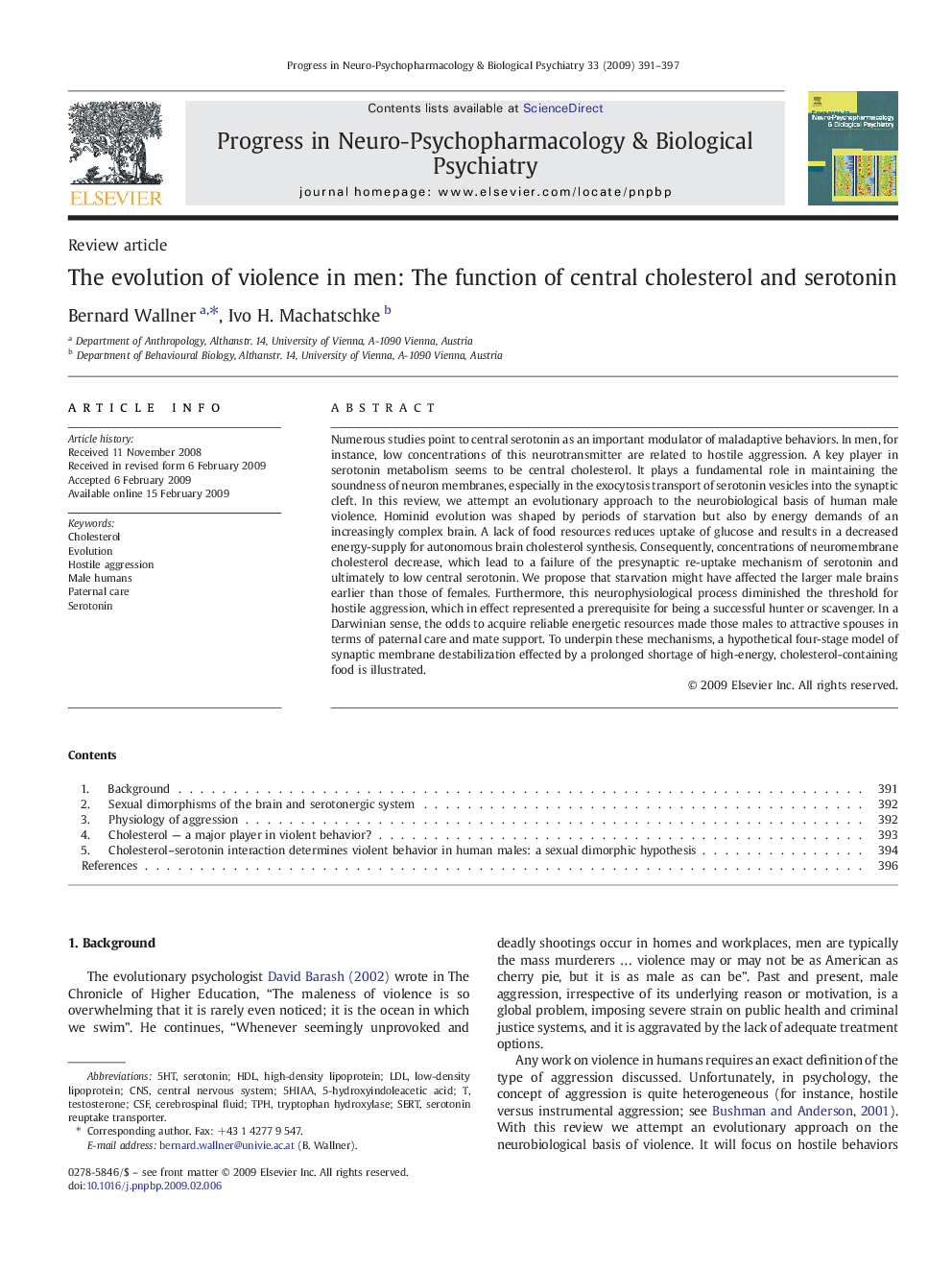| Article ID | Journal | Published Year | Pages | File Type |
|---|---|---|---|---|
| 2566190 | Progress in Neuro-Psychopharmacology and Biological Psychiatry | 2009 | 7 Pages |
Numerous studies point to central serotonin as an important modulator of maladaptive behaviors. In men, for instance, low concentrations of this neurotransmitter are related to hostile aggression. A key player in serotonin metabolism seems to be central cholesterol. It plays a fundamental role in maintaining the soundness of neuron membranes, especially in the exocytosis transport of serotonin vesicles into the synaptic cleft. In this review, we attempt an evolutionary approach to the neurobiological basis of human male violence. Hominid evolution was shaped by periods of starvation but also by energy demands of an increasingly complex brain. A lack of food resources reduces uptake of glucose and results in a decreased energy-supply for autonomous brain cholesterol synthesis. Consequently, concentrations of neuromembrane cholesterol decrease, which lead to a failure of the presynaptic re-uptake mechanism of serotonin and ultimately to low central serotonin. We propose that starvation might have affected the larger male brains earlier than those of females. Furthermore, this neurophysiological process diminished the threshold for hostile aggression, which in effect represented a prerequisite for being a successful hunter or scavenger. In a Darwinian sense, the odds to acquire reliable energetic resources made those males to attractive spouses in terms of paternal care and mate support. To underpin these mechanisms, a hypothetical four-stage model of synaptic membrane destabilization effected by a prolonged shortage of high-energy, cholesterol-containing food is illustrated.
